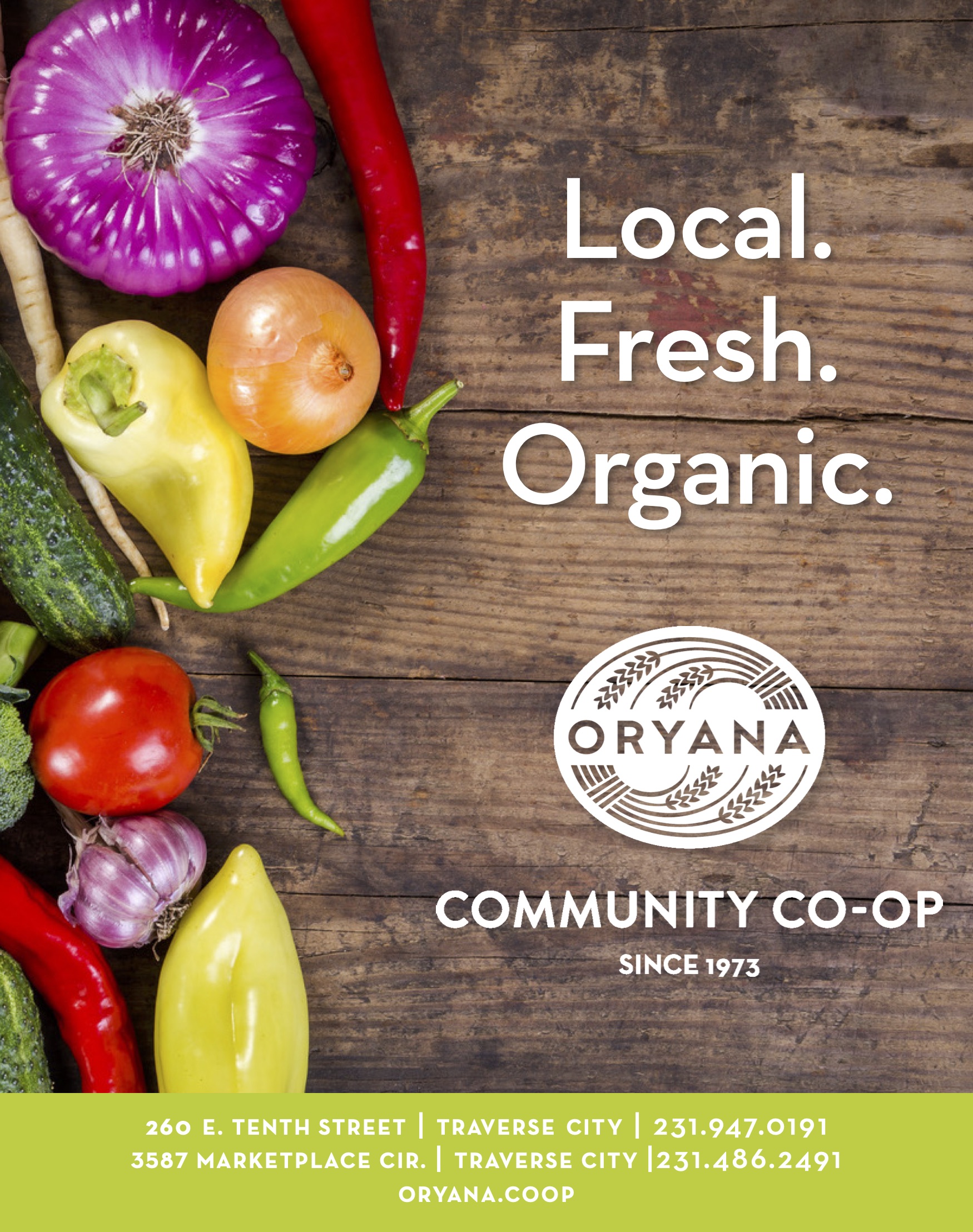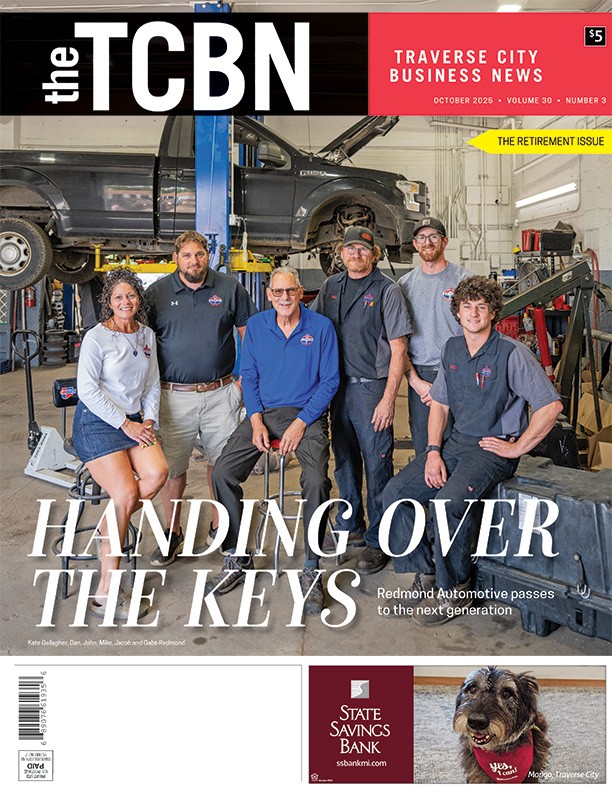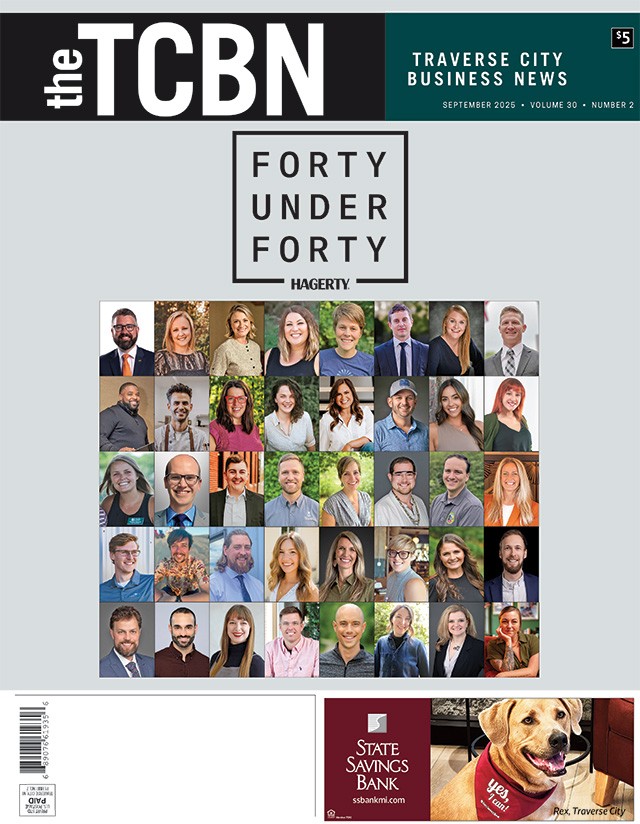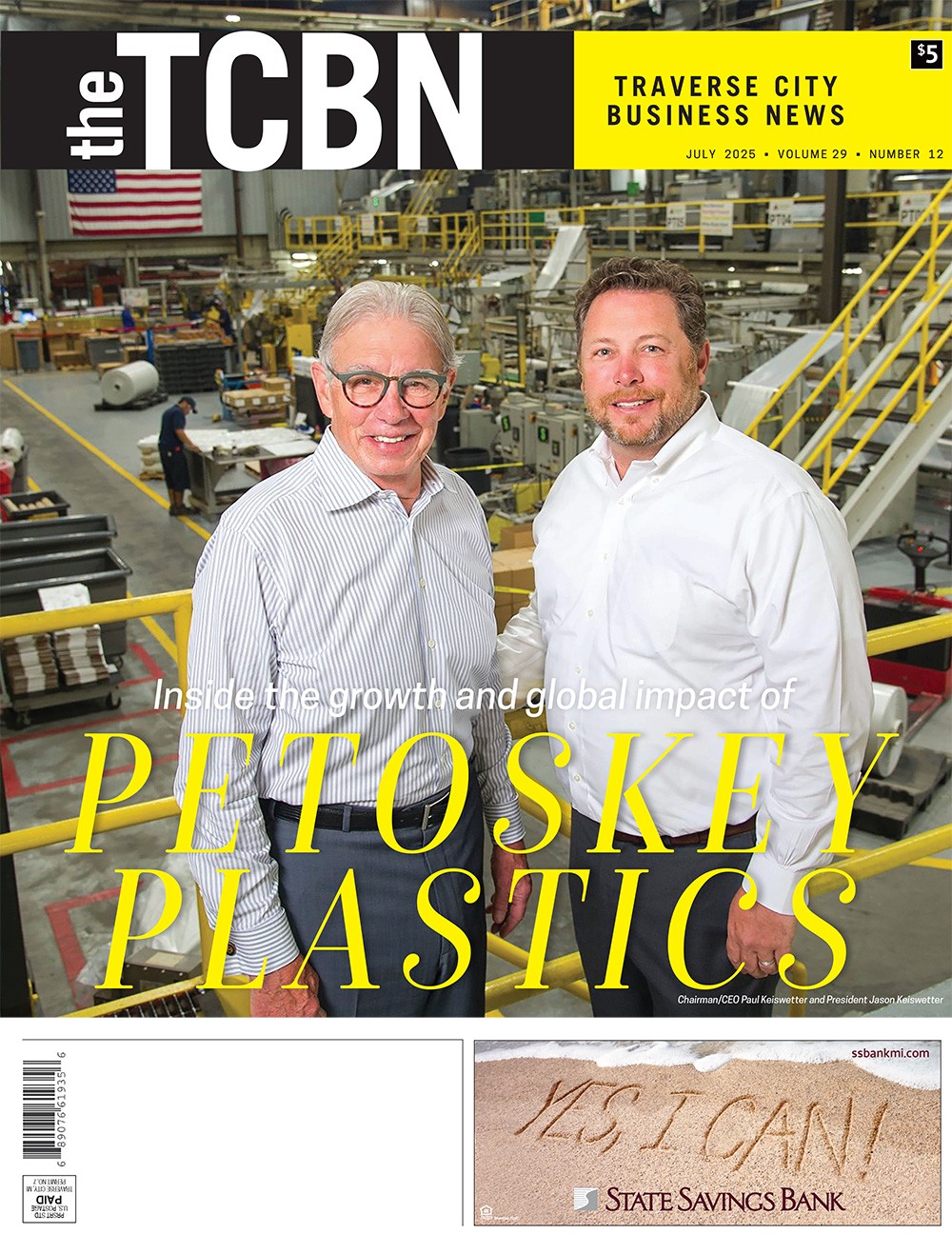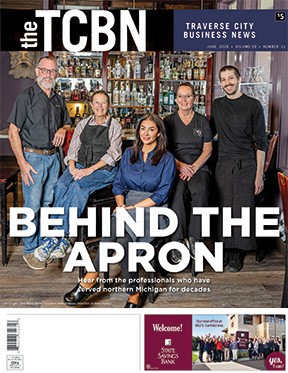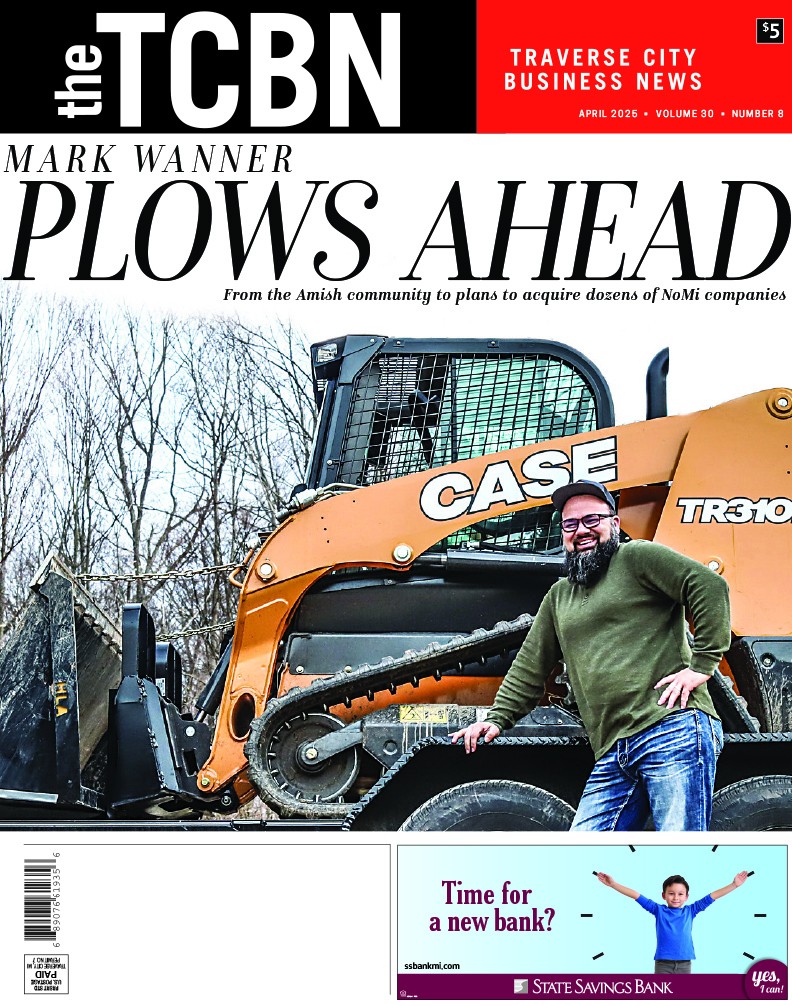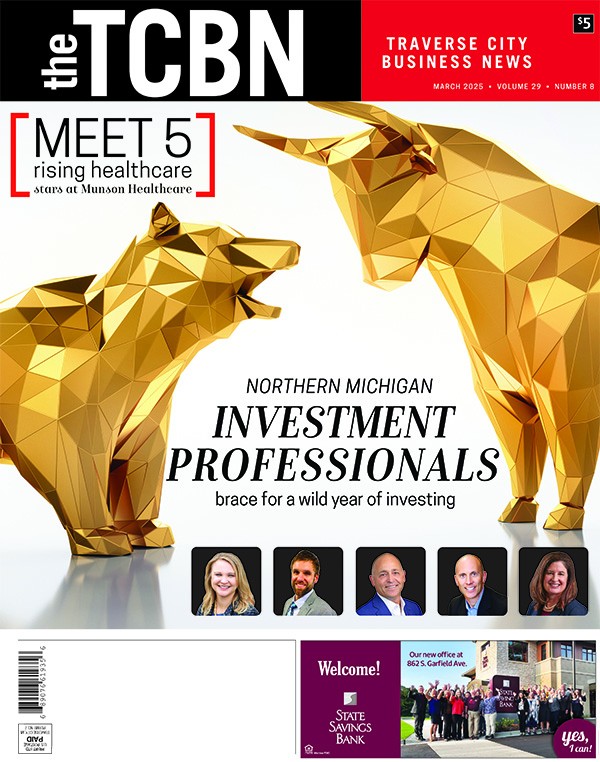'We're Always Pushing the Limit:' Petoskey Plastics drives innovation in recycled materials
July 2025
With more than $230 million in annual sales, nearly 600 employees and more than 6,000 customers in 45 countries, it’s clear that Petoskey Plastics is one of the most prominent companies in the Little Traverse Bay region.
And while those are indeed impressive figures, management is perhaps most proud of other stats. In 2024 alone, for instance, the company recycled nearly 40 million pounds of old plastic, diverting it from landfills and incorporating it into state-of-the-art new products that serve a wide variety of markets.
A recycling program that began years ago as a simple business opportunity for a young firm is now a key part of Petoskey Plastics’ operations and identity. As more and more consumers demand sustainable products, these practices are also increasingly vital to the company’s appeal and continued success.
At 50 years and counting, the company recently opened a plant in Texas and is poised for continued growth. The TCBN checked in with President Jason Keiswetter to find out what’s next for his family-owned and industry-leading firm.
History
What’s now a relative juggernaut began in a Petoskey pole barn in 1969. Duke Keiswetter, his son Paul and a couple of employees started using a single machine to make relatively simple plastic bags for a variety of applications.
Duke had been in the restaurant business for a short time, but he wanted to find a new, stable opportunity for success. He came with a background in plastics, earlier running a company in Detroit that produced a variety of plastic and injection-molded components for the automotive industry.
Petoskey Plastics’ early days were promising but bumpy, and the company flirted with bankruptcy within its first five years.
“We just needed time, in my mind,” Paul said in an interview collected for the company’s 50th anniversary. “I had confidence that we could survive, but how were we going to do it?”
A loan from the federal Small Business Administration for new equipment and operations costs helped shore things up. A short time later, Paul reinvested earnings from a massive government bag contract into new equipment, allowing for further stability and growth. It wasn’t long before the company moved into a much larger facility along U.S. 31 near Bay Harbor.
In 1978, the company made its first venture into recycling plastics when Paul convinced Dow Chemical to sell him thousands of used plastic bags. Petoskey Plastics cleaned these bags, ground them up and turned them into new products, starting what would eventually evolve into a major segment of the company’s business model.
The 1980s saw another huge springboard as the company broke into the automotive market with Slip-N-Grip, a protective seat cover that could be counted on to stay in place during the vehicle manufacturing process. The company patented and began producing millions of these covers.
The 1990s were a time of significant expansion with Petoskey Plastics’ recycling programs. The company received a roughly $1 million grant from the state for additional equipment that transformed plastic waste into pellets for new applications. It became one of the first North American companies to successfully recycle low-density, post-consumer plastics on a large scale and use them in new products.
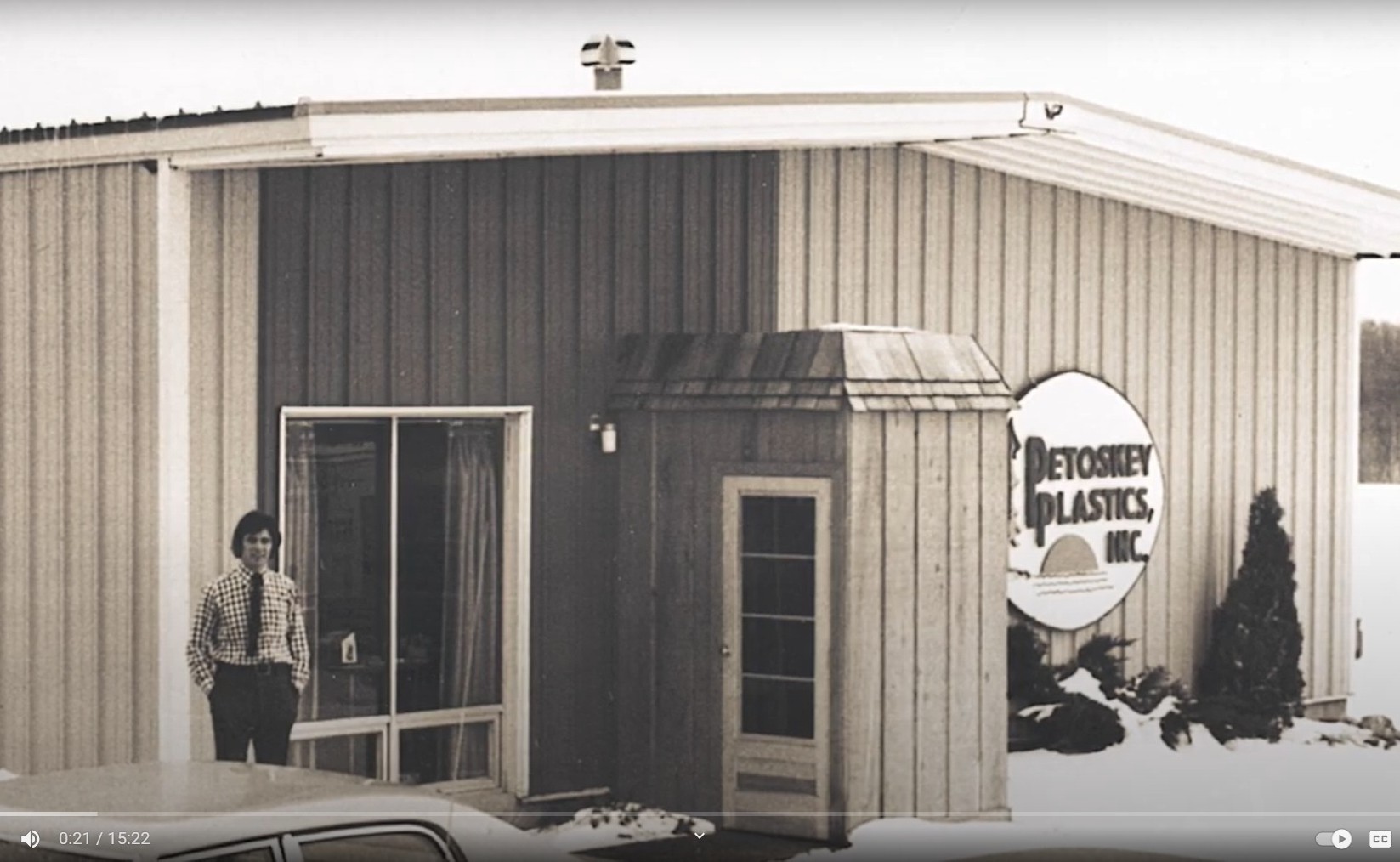 Paul at the factory in the early days.
Paul at the factory in the early days.The turn of the century and first decade of the 2000s saw Petoskey Plastics acquire large facilities in Tennessee and Indiana to provide faster ship times and lower freight costs to customers throughout the country. Company leaders also opened a new corporate headquarters in downtown Petoskey.
In 2021, the company opened a manufacturing plant on the outskirts of Dallas in McKinney, Texas, an expansion intended to capitalize on proximity to raw material suppliers and shorten delivery times for West Coast customers.
Jason Keiswetter, Paul’s son, says that Paul has often remarked that people thought they were crazy for starting a manufacturing company way up in northern Michigan, far away from the supply chain and potential customers. Looking back, it makes the ride all that more fun.
“We're going to make a bag company in northern Michigan, and no one could really imagine that we're going to become this multi-state, multi-national customer base, but here we are,” Jason said.
State of the company
Petoskey Plastics now sits with four major facilities and six divisions that provide hundreds of mostly blown-film plastics products to the automotive, medical, construction and institutional markets, among others. These products include a dizzying variety of bags, protective sheeting, medical gowns and much more.
About 70% of their products are sold to domestic customers (including more than 25 Fortune 500 companies), though the overseas business is not small potatoes.
Duke Keiswetter died in 2015 at age 94. Paul has transitioned to chairman and CEO, while Jason is now president. The past few years have been a rough ride, Jason says, with COVID, inflation, supply-side issues and more, but what hasn’t killed the company truly made it stronger.
“It’s really been a challenging four years, but we’re still here and we’re continuing to grow,” he said. “We survived all of it, and I’m pretty proud of that.”
The current economy and political climate also present plenty of uncertainty, but also opportunity. A drop in imports, for example, allows for growth in the retail sector.
“I’m seeing it on both sides. We had to pay a tariff on some equipment we brought in, but it’s also opening a lot of doors for us to quote new business because a lot of our products are heavy traffic in imports,” he said. “So I’m talking to companies I haven’t talked to before … and here we are at the table with a domestic supply option.”
Jason is glad to have the Texas plant up and running, particularly since planning for it began right before COVID shut the world down. Now, it’s onward and upward.
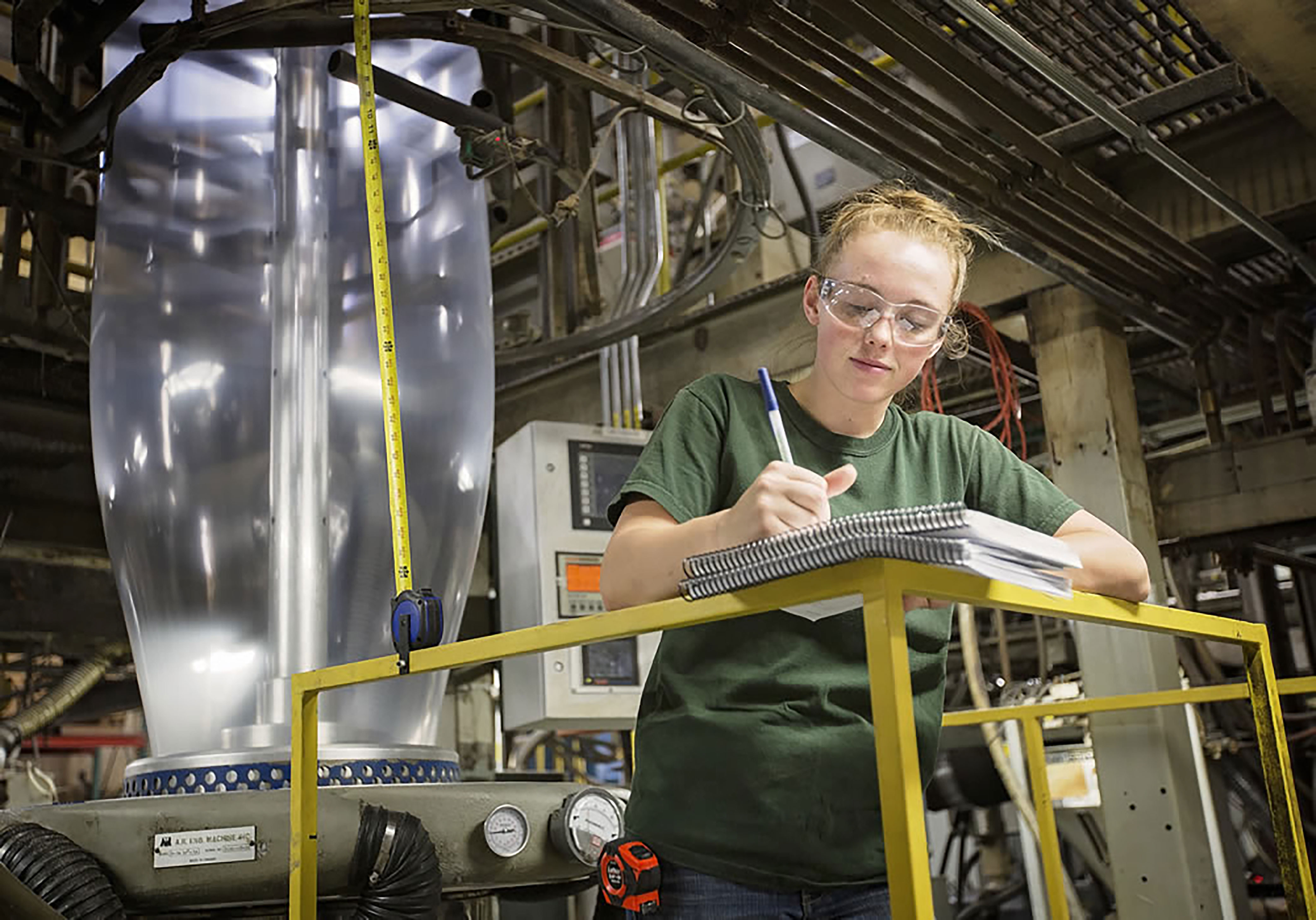 An employee works in the Petoskey factory.
An employee works in the Petoskey factory.“Our investment into McKinney is very exciting. The infrastructure is behind us. We've done the heavy lifting, we’ve been through COVID and all of those other things,” he said. “Now we’re going to be able to refine and execute on a different level than we have before.”
Still, despite this continued nationwide growth, the company’s heart remains where it was born and raised.
“We’re thrilled to have our headquarters right here in Petoskey, Michigan, and our main plant – our original plant – is still in Petoskey,” Jason said. “There’s a lot of pride in being here and supporting the many families that we have here.”
Jason has traveled the world and has found no better place to live and work than Petoskey, he says. Being a major player in the plastics industry is icing on the cake.
“We've got a good reputation in the market, and we're respected in the market. Having that clout coming from northern Michigan, well, it really doesn't get much better than that,” he said.
The company has strong worker retention, with many employees racking up multiple decades of service.
“Our associates really make the company, and … my hat’s off to them,” Jason said. “Most of them have known me since I was a kid, so that's kind of fun, too. I've got a lot of parents running around the factory.”
Part of this is probably because the company continues to invest in its employees, a tradition dating back to when Paul partnered with North Central Michigan College about 20 years ago to create the first-ever college program in the country specifically designed to train skilled plastics workers – and then sent his employees.
“Immediately after they graduated, they got a four dollar an hour raise, but I wanted to get them educated the best I could [so they could] feel good about themselves and understand more about the industry,” Paul said in the 50th anniversary interview.
Investing in employees is more important than ever, Jason says, considering how hard it can be to keep them around.
“You really need to take training and make an investment into lifting their knowledge, because they have options, and they can move, and they can go and you've got to treat them right,” Jason said. “At the end of the day, we have to give them the tools. A lot of people want to learn and better themselves.”
A continued focus
Paul’s initial foray into recycling Dow Chemical’s old bags more than 40 years ago was a “cost play,” Jason says – a clever move from a hungry young company. Who would have thought it would become a Petoskey Plastics signature?
“It's evolved into high-speed recycling of landfill-bound plastic, and we're remanufacturing it into everything from bags to seat covers to retail trash bags with drawstrings on them,” he said. “It's been a journey from a situation where we just were looking for ways to compete, but now we're competing and doing great things for the environment [at the same time].”
Plastic gets a bad rap, understandably so in many cases. But Jason points to studies that show a relatively low environmental impact with recycled plastics.
“We are a perfect example of it being real. We’re doing it every single day. We've been doing it for 20, 30 years,” he said. “And there's people jumping on board, and we're helping those people figure it out as well.”
While processing discarded plastic is the critical first step in the recycling process, Petoskey Plastics is also skilled at turning these recycled plastics into new products.
"Anybody can put plastic in an extruder and regrind it and make a pellet, but then what are you doing with it?” he said. “Our ability to take millions of pounds a year of landfill-bound plastic and [give it] another life separates us in the market of plastics.”
Company engineers are constantly developing new applications for recycled plastic, often combining it with virgin plastic for a strong, versatile product. The company recently invested more in its research and development department to stay on top of the market.
“Most companies have one monolayer, and you can only put so much post-consumer in that product, but everything we do is multilayer. We have 65% post-consumer content [in a lot of products], and we've been toying around with 100% blends,” he said. “So we're always pushing the limit and leading that front edge on the post-consumer content side.”




